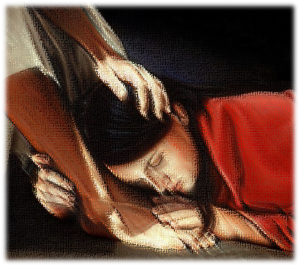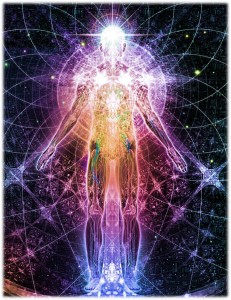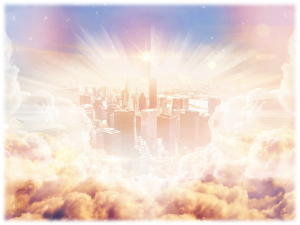ESTHER 5: PRIDE GOES BEFORE A FALL
As already said five days ago in my Breadcrumbs, the Book of Esther is set in the exile years for the Creator God’s family. While Ezra and Nehemiah are about the exiles who return to Jerusalem in the 5th Century BC,  Esther is about those who were scattered across the known world in 127 provinces (country states) from India to Cush (possibly modern-day Ethiopia).[a] That said, the Creator God’s Handbook for Life started in The Beginning, and that puzzle piece has never left the table. It’s the puzzle piece that tells us how we were specifically designed as images of the Creator God (a ‘human’ is a mortal image of God Himself) and that we were designed to operate in His likeness – to be like Him.[b] In fact, it’s a puzzle piece that’s in play in every scene throughout this Global Drama.
Esther is about those who were scattered across the known world in 127 provinces (country states) from India to Cush (possibly modern-day Ethiopia).[a] That said, the Creator God’s Handbook for Life started in The Beginning, and that puzzle piece has never left the table. It’s the puzzle piece that tells us how we were specifically designed as images of the Creator God (a ‘human’ is a mortal image of God Himself) and that we were designed to operate in His likeness – to be like Him.[b] In fact, it’s a puzzle piece that’s in play in every scene throughout this Global Drama.
So now we skip forward in time to the Book of Esther many millenniums into HIStory, yet we see four character types and how they interact with their environment in the way that they were specifically designed to do…or not…
-
The King. First, there’s the king who is supreme ruler over the then known world. Yet he handed over his signet ring to destroy an entire people group knowing neither who they were, nor what they contributed to the empire to outweigh this negative report.[c] He simply abdicates his leadership and took one person’s word for it, then assumes they are a threat to his kingdom. This is done without taking charge over the situation and ruling in the way that he was specifically designed to rule, as an image of God Most High (a representative) of the Supreme God.
-
The Tyrant. You have an administrator, a second in command, who is not called an usurper. He has in his hands exactly what he’s been given:
 supreme authority in the world’s only Empire at the time. As an under-dog (not one of the 7 princes of the realm[d]) and a possible exile himself (he was an Agagite from the land of the Amalekite king Agag, hundred’s of miles away[e]), he could have been happy with his luck in life. Instead, it went to his head and he thought more highly of himself that he ought.[f]
supreme authority in the world’s only Empire at the time. As an under-dog (not one of the 7 princes of the realm[d]) and a possible exile himself (he was an Agagite from the land of the Amalekite king Agag, hundred’s of miles away[e]), he could have been happy with his luck in life. Instead, it went to his head and he thought more highly of himself that he ought.[f] -
The Sojourner. Then there’s an exiled Hebrew, who understands that he doesn’t belong here at all. Instead, he trusts in his Creator more than life itself as he crosses the wilderness in this ‘in-between place’. He knew the words spoken over the People of God by Moses many centuries earlier: “And now, Israel, what does the Lord your God ask of you but to fear the Lord your God, to walk in obedience to him, to love him, to serve the Lord your God with all your heart and with all your soul.”[g] So, with a healthy fear of his Maker who holds our life in His hands, Mordecai put in second place the idea of pleasing an image of God and his bravery in putting ‘the real thing’ in top place, risked everything they had left.
-
The Slave. Finally, there’s Esther, and since it’s now the 12th year of the king’s reign, she is 5 years into her marriage and probably 21 years of age at this stage. Still taking advice from her uncle[h], she is caught in a fairytale existence that seems
 bent on being a nightmare at every turn. By walking tall in graceful steps while Life is on the chopping block, she represents all of us when Life is haunting. Yet the level of meekness in her majesty is God-like. In today’s chapter, she is ruling over her weather-beaten environment strategically and carefully yet with a lot of prayer. You may remember from yesterday’s Breadcrumb that she set the fasting period to three days – neither to eat or drink both night and day.[i] Three days without water can be lethal in a middle-eastern country, and it shows her awareness of her serious need for her Creator’s help as she treads the tight rope across this life.
bent on being a nightmare at every turn. By walking tall in graceful steps while Life is on the chopping block, she represents all of us when Life is haunting. Yet the level of meekness in her majesty is God-like. In today’s chapter, she is ruling over her weather-beaten environment strategically and carefully yet with a lot of prayer. You may remember from yesterday’s Breadcrumb that she set the fasting period to three days – neither to eat or drink both night and day.[i] Three days without water can be lethal in a middle-eastern country, and it shows her awareness of her serious need for her Creator’s help as she treads the tight rope across this life.
V1-8 in today’s chapter is her plan in practice, and nothing can be said about it unless you can hear her heart thumping as she composes herself in front of the world’s greatest murderers. To stay calm in adversity when you are so weaken from lack of water in addition to no food, is not something that many of us can do easily. But calm in the storm is something our Maker can do it, and HIStory has proven it. Since we are created in His image to operate like Him, we need His level of self-control. But it isn’t an outcome of sheer ‘will power’. He has given His people the ‘fruit’ (nine characteristics) of His Holy Spirit, to help us through every situation that we are ruling over….
“But the fruit of the Spirit is love, joy, peace, patience, kindness, goodness, faithfulness, gentleness and self-control; against such things there is no law.” [Galatians 5:22-23]
Haman on the other hand, displayed none of these! [v9-14] If we are manufactured clones of Father God, fresh off the factory line and given a test run on Planet Earth to put us through our paces before we’re considered  to be in ‘good working order’ ready for the real story in our Maker’s Eternal Kingdom (or else rejected as defective by the Factory foreman[j] ), then Haman is defective as an image of God. Instead of being happy and counting his blessings, as he appeared to have done with his family and friends [v11-12], nothing is savored because of his self-centered self-indulgent disposition. [v13] Now if Father God is as omniscient (all-knowing) as I know He is, and nothing is random but everything has been kept in 100% perfection, then even the fact that this v13 is 13 – that fateful number that has already come up in my Breadcrumbs two days ago[k] – this surely was neither random then nor random now. The fact that Haman’s wife and friends are so horrifically evil in their cold-hearted yet blatantly flamboyant death plot, simply shows that his personal eco-system was an incubator for evil. [v14] None of them are images of God operating in His likeness at all. It isn’t just a saying that pride in who we currently are will come before a fall, it’s a certainty.
to be in ‘good working order’ ready for the real story in our Maker’s Eternal Kingdom (or else rejected as defective by the Factory foreman[j] ), then Haman is defective as an image of God. Instead of being happy and counting his blessings, as he appeared to have done with his family and friends [v11-12], nothing is savored because of his self-centered self-indulgent disposition. [v13] Now if Father God is as omniscient (all-knowing) as I know He is, and nothing is random but everything has been kept in 100% perfection, then even the fact that this v13 is 13 – that fateful number that has already come up in my Breadcrumbs two days ago[k] – this surely was neither random then nor random now. The fact that Haman’s wife and friends are so horrifically evil in their cold-hearted yet blatantly flamboyant death plot, simply shows that his personal eco-system was an incubator for evil. [v14] None of them are images of God operating in His likeness at all. It isn’t just a saying that pride in who we currently are will come before a fall, it’s a certainty.
Still, if you think that today’s chapter comes from a prehistoric group 2400+ years ago and that the civilized West at least has evolved, just look in your review mirror because WWII Germany hasn’t receded into infamy best forgotten. It still looms in the margins of our blotted copybooks, and it could quite easily break in upon us again at our next turn. But whatever storms come out way, our job is to be like Mordecai and Esther – operating to Maker’s Handbook regardless of any apparent or projected cost to us. Then, walking with decorum and head held high in grace and trust – like dwelling in the vortex of a tornado, yet with a direct line of vision to our Maker and Father God. In that place of perfect calm where a shaft of sunlight pours in and the blue sky can be seen directly above; in that secret place at the center of the tempest I’ve seen The Almighty, and He reigns in perfect peace as the storms rage on…
CLICK to return to today’s “Daily Breadcrumbs”
ADDITIONAL THOUGHT FOR YOU, AFTER FAST-FORWARDING IN TIME ANOTHER 400+ YEARS…
The Creator God’s epic storyline shows in today’s chapter how Queen Esther bravely plans a banquet as a way of setting up an opportunity to tell the king about the death plot against her people. But after reading this chapter, I can’t help but wonder what would have happened had Queen Esther actually asked for “up to half the kingdom” as King Achashverosh (Ahasuerus/Xerxes) had publicly offered to her! [v3&6] A few centuries later in the 1st Century AD, King Herod made the same foolish offer to his niece, the daughter of Herodias.[l] It seems to me that it was something that they could not have followed through on – a hollow offer constructed with meaningless words.
Unlike the empty promises of this ‘king of the world’, Jehoshua ben Dovid in the 1st Century AD has been given full authority under the Creator God as heir of His Father’s Kingdom – the One who sits at the right-hand of God.[m] For God to share His Glory with another is completely unheard of. But the Creator God went beyond that by giving Jehoshua authority to act on His behalf to judge whether to pardon our transgressions (forgive sins), and He did this by putting His name inside Him and on Him.[n] Unlike handing over His own ‘signet ring’ to seal things, like the king and Haman in today’s chapter, the Name of the LORD God Almighty is actually embedded within another Person since the days of Moses – Jehoshua (which means: God is Deliverance).
Now if all this isn’t mind-blowing as it is, Jehoshua ben Dovid then said to His Followers: “If you ask Me anything in My Name, I will do it.”[o] Then He tops this with another incredible offer: “…Truly, truly, I say to you, if you ask the Father for anything in My name, He will give it to you.”[p]  The grace, mercy and love of our Father God then goes beyond all limits when He gave us His only Son to die for us.[q] He then goes yet another step to make us co-heirs together with Christ of His Kingdom.[r] So, unlike Queen Esther or the niece of Herod who were given hollow offers that could never seriously be honored, Father God has offered to His image-bearers (all people everywhere) a once-in-this-lifetime-chance to inherit the Kingdom of God.[s] Now that’s a thought….
The grace, mercy and love of our Father God then goes beyond all limits when He gave us His only Son to die for us.[q] He then goes yet another step to make us co-heirs together with Christ of His Kingdom.[r] So, unlike Queen Esther or the niece of Herod who were given hollow offers that could never seriously be honored, Father God has offered to His image-bearers (all people everywhere) a once-in-this-lifetime-chance to inherit the Kingdom of God.[s] Now that’s a thought….
[a] Esther 1:1
[b] Genesis 1:26-28
[c] Esther 3:8-10
[d] Esther 1:14
[e] Number 24:7 and 1 Samuel 15:8
[f] Romans 12:3
[g] Deuteronomy 10:12
[h] Esther 2:20
[i] Esther 4:15-16
[j] Matthew 25:31-34
[k] Esther 3:12-13
[l] Mark 6:23
[m] Psalm 100:1 (See Also Mark 16:19; Luke 22:69; Acts 2:33 & 7:56; Romans 8:34; Colossians 3:1; Hebrews 1:3,13; 10:12 and 12:2)
[n] Exodus 23:20&21 and Revelation 19:16
[o] John 14:14
[p] John 16:23
[q] John 3:16
[r] Romans 8:17
[s] Matthew 25:34 (See also 1 Corinthians 6:9,10 & 15:50; Galatians 5:21 and Ephesians 5:5)